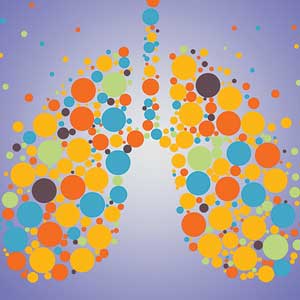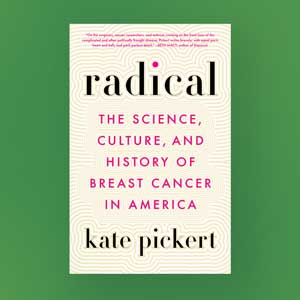-
Forward Look
Cancer Death Rate Decline Makes HeadlinesExperts say it's necessary to look behind the statistics.
by Delia O’Hara
-
Caregiving With Confidence
The Power of AngerAccepting this emotion can be the first step in channeling it for a constructive purpose.
by Karen J. Bannan
-
Forward Look
Cancer Treatments and Antioxidant Supplements Can Be a Bad MixChristine Ambrosone on what her research shows.
by Sue Rochman
-
Facts and Stats
A Quarter Century of Progress Against Lung CancerWhile advances have been made in treating lung cancer and risk reduction, there is still plenty of work to be done.
by Bradley Jones
-
Policy Matters
Racial and Ethnic Disparities in Multiple Myeloma Clinical TrialsThe AACR and the FDA presented joint recommendations that include broadening clinical trial eligibility and engaging the community in clinical trial recruitment.
by Kenneth C. Anderson, MD; Lola A. Fashoyin-Aje, MD, MPH; Nicole Gormley, MD; and Paul G. Kluetz, MD
-
Forward Look
Here Come the BiosimilarsAs patents expire on biologic drugs, cancer patients get new options.
by Stephen Ornes
-
Forward Look
More Treatments Approved for Metastatic Breast CancerTargeted therapy approvals increase options and hope for some patients.
by Cameron Walker
-
Q&A
Taking the Long ViewIn her first book, journalist and breast cancer survivor Kate Pickert traces the winding road of cancer research and patient advocacy.
by Marci A. Landsmann
-
Healthy Habits
Active TreatmentRegular exercise may help mitigate the lingering psychological impact of childhood cancer.
by Carisa D. Brewster
-
Keeping CLL in Check
With recent advances in targeted treatments, people diagnosed with chronic lymphocytic leukemia have more options to manage the disease.
by Kendall K. Morgan
Cancer Talk
Lessons From 20 Years Living With Cancer
Multiple myeloma survivor Jonathan Gluck reflects on uncertainty, and the scientific progress that has kept him living with cancer for more than two decades.
by Eric Fitzsimmons
The Enduring Importance of Cancer Disparities ResearchOpening session from AACR conference highlights how perseverance and adversity have informed cancer disparities research over the years.
by Eric Fitzsimmons
Most Cancer Survivors Don’t Meet Healthy Diet GoalsDespite research linking fruits and vegetables to cancer survival, many people do not change their eating habits after diagnosis.
by Darlene Dobkowski
Many People Don’t Get Colonoscopy After Receiving Abnormal Blood TestsAbout half of people who receive abnormal results from colorectal cancer screening tests don’t follow up with a colonoscopy.
by Laura Gesualdi Gilmore















